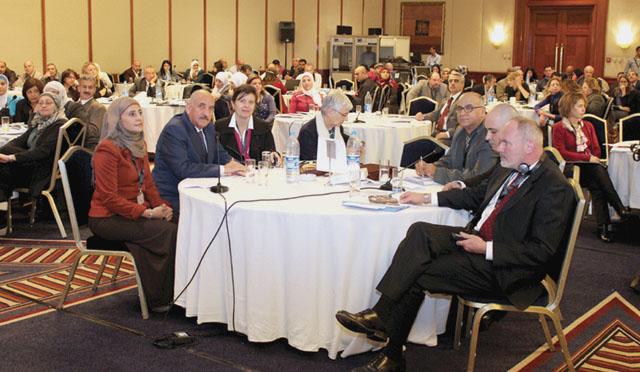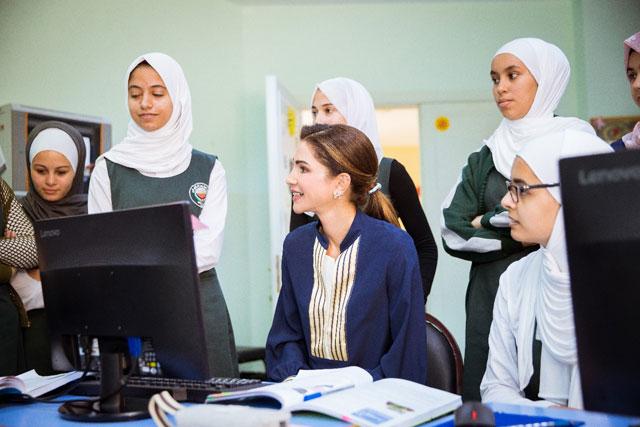You are here
Inclusive education more vital than ever for Jordan — UNRWA adviser
By Laila Azzeh - Aug 24,2015 - Last updated at Aug 24,2015
AMMAN — Inclusive education — which is based on the premise that all individuals have the right to quality education within a system that accommodates any learner — was the highlight of an event held on Monday.
The Middle East Network on Innovative Teaching and Learning (MENIT) brought together teachers and educational experts to discuss an old-new pedagogy that is flexible enough to absorb all students, including those deemed marginalised, underprivileged or those with disabilities.
“Inclusive education is about developing the educational system to be more responsive to the different needs of all students. It is not a new concept, as parts of its aspects are already being applied in our schools, but not systematically,” said Kamal Jabr, inclusive education adviser at UNRWA.
With the challenges facing schools in the region growing rapidly, having more than 1.8 million Syrian students out of school in 2013 and dropout rates that reach 3 per cent in Jordan, 4 per cent in Lebanon and 7 per cent in Palestine, inclusive education has never been more important for the region, according to the expert.
“This educational approach is the prerequisite for stability. If schools managed to accommodate all students, they will grow up to create non-discriminatory, peaceful and stable societies,” said Jabr, who highlighted that inclusive practices, which include collaboration, teamwork and innovative instructional methods, can be applied in private as well as in public schools.
Inclusive education is also a process in which all stakeholders — teachers, students, parents, decision makers and NGOs — participate to remove barriers to access education.
“An unhappy student in the classroom will not learn. We believe that the educational system is able to improve students’ enrolment rate in schools,” said Jabr.
During the event, Hala Murad, a member of MENIT’s steering committee, highlighted the principles of the Incheon Declaration: “Education 2013: Towards Inclusive and Equitable Education and Lifelong Learning for All”, which serves as the roadmap for realising inclusive education.
Supported by the German Development Cooperation (GIZ), MENIT seeks to empower educators from Jordan, Lebanon, Palestine and Syria to create a dynamic network among educational experts and practitioners to share innovative practices.
Its main objective is to support educational experts in their efforts to improve graduates’ capabilities in critical analysis and creative thinking, according to organisers.
Participants at the event cited lack of resources, support and overcrowding as the main problems they believe hinder the implementation of inclusive education at schools in the region.
“How can my students in Southern Shuneh have the same quality of education provided to their peers in Amman while they suffer from very hot weather and shortage of teachers?” asked the principal of a girls school in Shuneh.
Another school principal agreed, adding that teachers lack the required motivation to apply the innovative inclusive educational method.
“The problem is not in educators, who excel when they work in the Gulf for example, but in the low salaries and incentives they receive as well as the poor physical environment in most of the public schools,” he said.
While acknowledging these issues, Jabr noted that all of these problems should not stand in the way of moving towards better education.
“These problems have been around for years; does that mean we have to stop progressing until they are over?” he wondered.
Related Articles
Political instability and internal conflicts in the region create an urgent need for developing quality-sustainable education programmes for emergency situations, experts said on Sunday.
Teacher-student interaction in the classroom should be aimed at encouraging critical thinking and creativity rather than spoon feeding, according to a former education minister.
AMMAN — Her Majesty Queen Rania on Monday met with beneficiaries of the Queen Rania Teacher Academy (QRTA) in Karak, whom she urged to conti


















